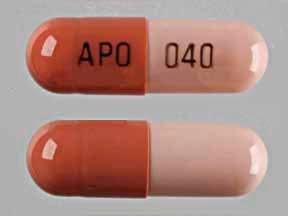
Omeprazole Coupons & Savings Card – Discount Prices from $4.16
Generic for: Ra omeprazole, Gnp omeprazole, Sm omeprazole
My prescription
Edit
40MG, Omeprazole (30 Capsule Delayed Releases)
Select pharmacy

CVS
$19.54
COUPON PRICE
Walmart
$4.16
COUPON PRICE
Walgreens
$10.64
COUPON PRICE
Albertsons
$12.77
COUPON PRICEOmeprazole savings card
Show this card to your pharmacist
Walmart
$4.16
BIN
ID
PCN
GRP
019876
LH69DC1F89
CHIPPO
LHX
Powered by
More prescriptions for heartburn
More prescriptions for heartburn
Price history for Prilosec (brand) & Omeprazole (generic)
30 Capsule Delayed Releases, 40MG
Average retail price for Prilosec
Average retail price for Omeprazole
Average SaveHealth price for Omeprazole
Our price history data is based on aggregated prescription data collected from participating pharmacies in America. Our prescription data updates daily to reflect the latest price changes. If you notice a missing data point, it means there wasn't sufficient data available to generate a monetary value for that date.
We analyzed Omeprazole prices for (40MG, 30 Capsule Delayed Releases) over the last 12 months. The average retail price was $33.29, while the average price using the SaveHealth discount card was $14.20. That's a savings of approximately 57.34% when using our Omeprazole coupon.
Compared to the generic version, Prilosec had an average price of $18.04 over the same time period. With the SaveHealth savings card, Omeprazole is 21.29% cheaper on average than Prilosec.
*Retail prices are based on pharmacy claims data, and may not be accurate when we don't have enough claims.
Omeprazole dosage forms
Dosage Quantity Price from Per unit 10MG 14 Capsule Delayed Releases $3.78 $0.27 10MG 30 Capsule Delayed Releases $5.24 $0.17 10MG 60 Capsule Delayed Releases $7.98 $0.13 10MG 90 Capsule Delayed Releases $17.22 $0.19 10MG 180 Capsule Delayed Releases $28.11 $0.16 20MG 14 Capsule Delayed Releases $2.96 $0.21 20MG 30 Capsule Delayed Releases $3.49 $0.12 20MG 60 Capsule Delayed Releases $4.49 $0.07 20MG 90 Capsule Delayed Releases $11.98 $0.13 20MG 180 Capsule Delayed Releases $20.35 $0.11
| Dosage | Quantity | Price from | Per unit |
|---|---|---|---|
| 10MG | 14 Capsule Delayed Releases | $3.78 | $0.27 |
| 10MG | 30 Capsule Delayed Releases | $5.24 | $0.17 |
| 10MG | 60 Capsule Delayed Releases | $7.98 | $0.13 |
| 10MG | 90 Capsule Delayed Releases | $17.22 | $0.19 |
| 10MG | 180 Capsule Delayed Releases | $28.11 | $0.16 |
| 20MG | 14 Capsule Delayed Releases | $2.96 | $0.21 |
| 20MG | 30 Capsule Delayed Releases | $3.49 | $0.12 |
| 20MG | 60 Capsule Delayed Releases | $4.49 | $0.07 |
| 20MG | 90 Capsule Delayed Releases | $11.98 | $0.13 |
| 20MG | 180 Capsule Delayed Releases | $20.35 | $0.11 |
| 40MG | 30 Capsule Delayed Releases | $4.16 | $0.14 |
| 40MG | 14 Capsule Delayed Releases | $3.28 | $0.23 |
| 40MG | 60 Capsule Delayed Releases | $5.83 | $0.10 |
| 40MG | 90 Capsule Delayed Releases | $13.99 | $0.15 |
| 40MG | 180 Capsule Delayed Releases | $24.28 | $0.14 |
